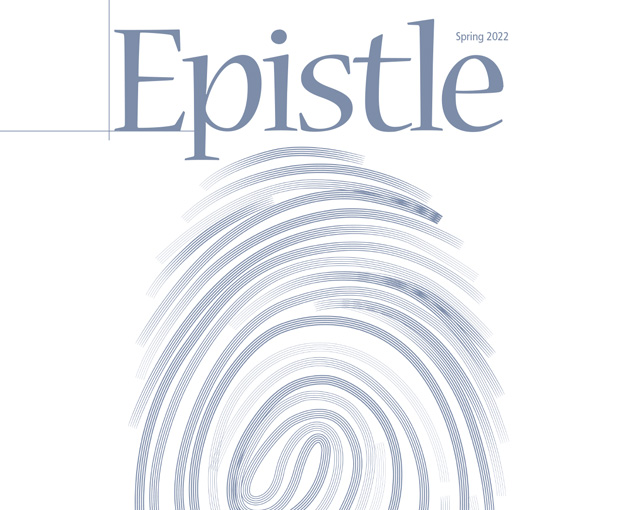The theme of this Epistle is “Identity”—or simply a three-word question, “Who am I?” We can answer this quickly and without careful thought by stating our outer characteristics: our name, our nationality and place of residence, our family status and role, our degrees and accomplishments, and our professional/occupational tasks.
But this question, when pondered thoughtfully, can lead us much deeper and toward a more profound answer. That is where the pastors and leaders of First Church will be taking us in the following pages.
The Apostle Paul warns us in Romans 12:2 not to let the world squeeze us into its mold. Society and the culture around us create constraints to make us fit into its definition of who we are, of who we should be. We feel this pressure from our earliest childhood through our adult years. It is relentless, frustrating, and confining, but most of all, it is just wrong. No one on earth can define us and answer the “Who am I?” question for us.
Christian filmmakers Alex and Stephen Kendrick showed deep insight into the struggle to find our true identity in their recent film, Overcomer. They follow the life of a teenage girl who was being buffeted by many pressures and feeling terrible about herself. She is brought to faith in Christ by a Christian teacher and begins to see herself in a new light by reading the Bible. The concluding lesson? Only your Creator has the right to tell you who you are. This concept is a powerful counter-cultural message, one that people in our confused world desperately need to hear.
You and I are precious to our Creator. We are His unique masterpieces. Each of us has an eternal soul that is so priceless to Christ that He gave His life for us to be with us forever. This is the message that your pastors want you to grasp and feel secure about.
The unbelieving world around us is constantly blasting us with two utterly false messages. One is that our identity is entirely up to us to fashion. The Disney film Frozen exalts this radical individualism, encouraging young people to discover themselves by realizing their deepest individual desires—regardless of their worth or purpose. The opposite message is that our identity is irrelevant—that who we are is solely determined by our racial and ethnic identity (which is the fundamental ideological error behind what has been labeled “Critical Race Theory”), by our gender and sexuality, or by our social and economic class.
Following either of these paths does not and cannot lead us to our true identity in Christ. The purpose of our life journey is not to create our identity, nor to have it imposed on us, but to joyfully discover it in a relationship with our Maker, who is also our loving Father.






